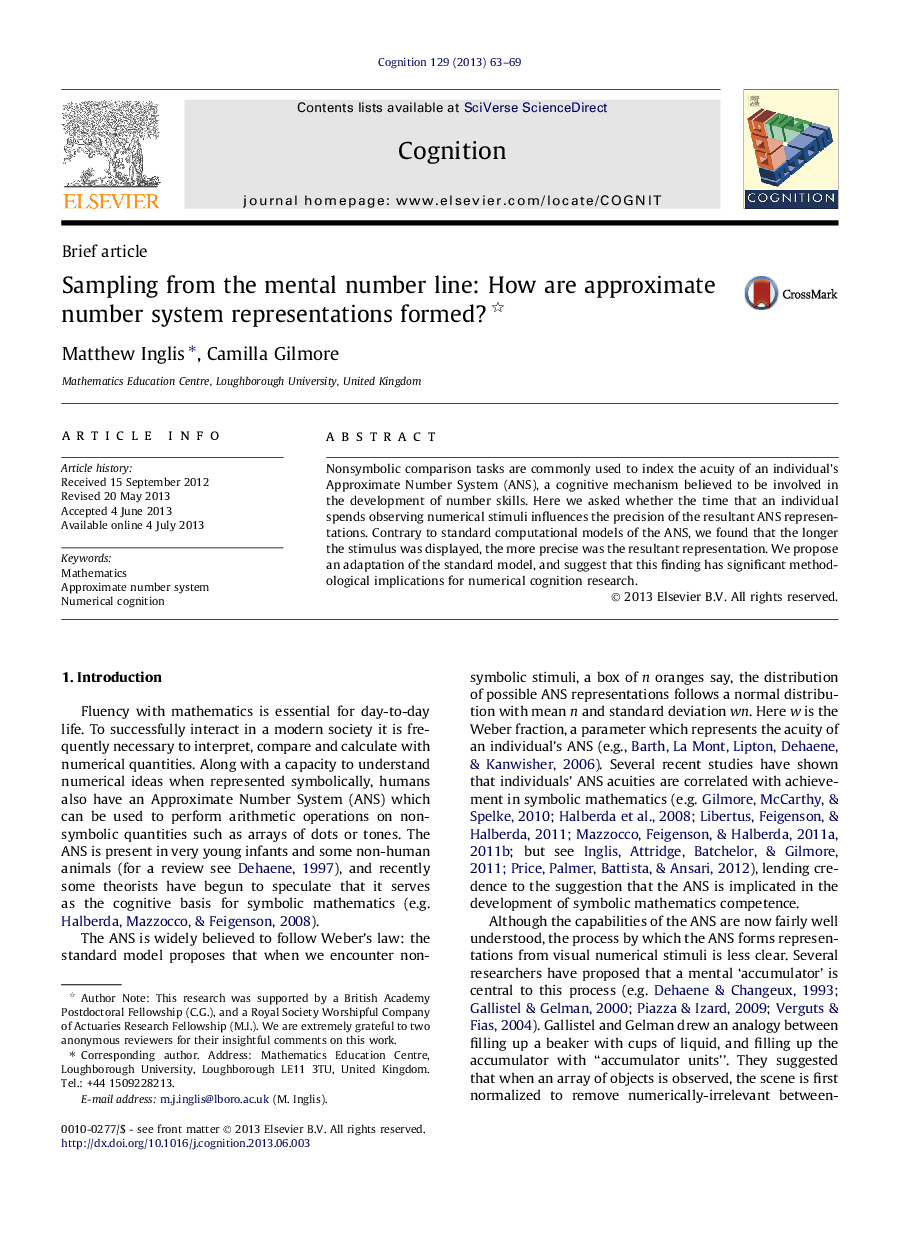| Article ID | Journal | Published Year | Pages | File Type |
|---|---|---|---|---|
| 10457702 | Cognition | 2013 | 7 Pages |
Abstract
Nonsymbolic comparison tasks are commonly used to index the acuity of an individual's Approximate Number System (ANS), a cognitive mechanism believed to be involved in the development of number skills. Here we asked whether the time that an individual spends observing numerical stimuli influences the precision of the resultant ANS representations. Contrary to standard computational models of the ANS, we found that the longer the stimulus was displayed, the more precise was the resultant representation. We propose an adaptation of the standard model, and suggest that this finding has significant methodological implications for numerical cognition research.
Related Topics
Life Sciences
Neuroscience
Cognitive Neuroscience
Authors
Matthew Inglis, Camilla Gilmore,
